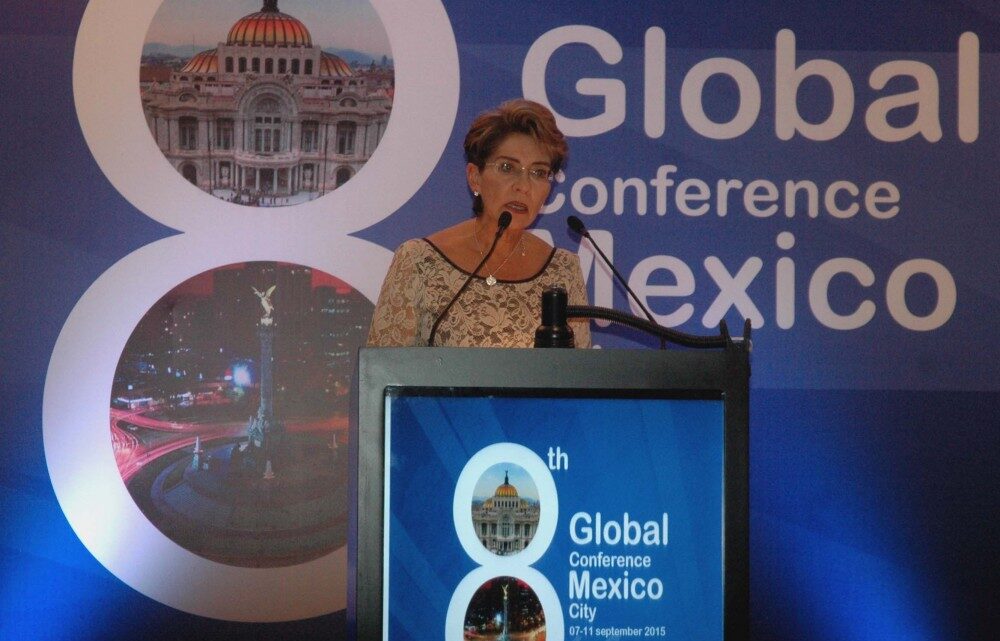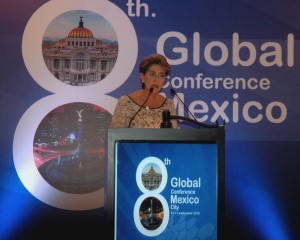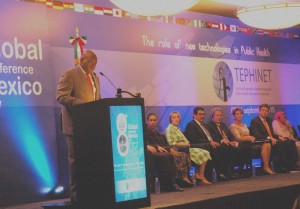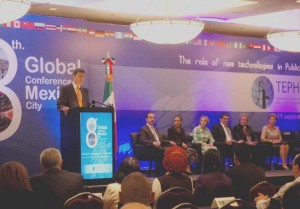Public organization “Narodna rada Kryukivshiny” appeals to international organizations and the media for help to…

EFFECTIVE AND TIMELY SURVEILLANCE OF RE-EMERGING AND EMERGING DISEASES, IS A WORLDWIDE MAIN CHALLENGE
17/09/2015Questo articolo è stato letto 5891 volte!
The Minister of Health, Mercedes Juan, opened the 8th Global Conference of the Network of Training Programs and Intervention in Epidemiology and Public Health (THEPHINET)*
Representatives of 43 nations, meet to exchange experiences in epidemiology
Effective and timely surveillance of emerging and re-emerging diseases, represents a major global challenge, said the Minister of Health, Dr. Mercedes Juan, stressing that in this task, the work of epidemiologists is essential, since they are who identify and study the different outbreaks of diseases.
In the opening of the 8th Global Conference of the Network of Training Programs and Interventions in Epidemiology and Public Health (TEPHINET), participated 43 nations. The Minister of Health highlighted the challenges that the epidemiology face to the globalization.
Accompanied by the director of TEPHINRT, Dionisio Herrera Guibert; President of The Task Force for Global Health, Mark Rosenberg, and the Under-Secretary of Health Prevention and Promotion of the Mexican Ministry of Health, Pablo Kuri Morales, Dr. Mercedes Juan recalled that in 2009, Mexico alerted the world of the presence of the first cases of influenza A (H1N1), which were identified by the Mexican Epidemiological Surveillance System.
Recently, she said, with the epidemic of Ebola virus in West Africa, the work of epidemiologists allowed each nation to develop a response plan and prevent the spread of this disease.
Dr. Mercedes Juan said that this has been the result of work done over several years by the Network Training Programs and Intervention Epidemiology and Public Health, through the training of epidemiologists in the world, strengthening the capacity of the international public health politics.
“Students who are trained in the field of epidemiology, dominate a competences for public health practices, and provide a valuable public health service to their countries,” she said.
Finally, she reported that the Residency Program in Epidemiology of Mexico, has trained 265 specialists in its 30 years of existence.
Dr. Pablo Kuri Morales, Undersecretary of Health Prevention and Promotion, explained that Mexico was the third country, after Canada and Thailand starting in 1985, the residency program in applied epidemiology.
Since then, Mexico has trained more than 29 generations in this specialty.
In his speech, Rosenberg Merk, president of the Task Force for Global Health reiterated that if there is not an epidemiological, sensitive and effective surveillance system, a disease can become a global catastrophe.
Currently, the world faces a global epidemic, such as non-communicable diseases, injuries and violence.
“If we do not stop this epidemic, a global disaster will be unleashed in economies around the world, considering that health systems do not have the economic capacity to confront it,” he said.
*Training Programs in Epidemiology and Public Health Interventions Network (TEPHINET) was created in 1997, is a professional network of 55 field epidemiology training programs (FETPs) around the world. TEPHINET aims to strengthen international public health politics capacity by training field epidemiologists, through an applied apprenticeship program in different countries and regions.
Its mission is to strength global public health politics capacity by supporting well-qualified professionals in field epidemiology through training and service and networking opportunities.
Related Images:

La Redazione delle testate Punto a Capo è composta da volontari che collaborano ad un progetto di condivisione delle informazioni indipendente. La maggior parte dei collaboratori sono pubblicisti, giornalisti, addetti stampa, ma ci sono anche collaboratori alle prime armi che iniziano ad approcciarsi al mestiere in un ambiente libero e senza padroni, il cui principio è dal lontano 1989 di essere la voce di chi voce non ha.



